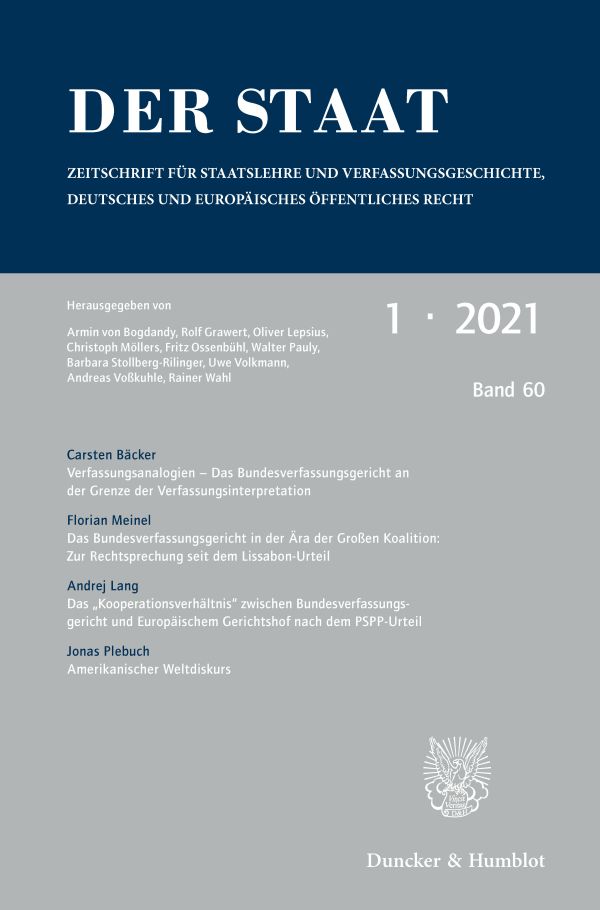The PSPP-ruling of the German Federal Constitutional Court has caused a lot of commotion and has already been described as “a declaration of war on the ECJ.” In my article “The ‘cooperative relationship’ between the German Federal Constitutional Court and the European Court of Justice after the PSPP Ruling – On the Viability of the European Constitutional Court Network,” which was just published in Der Staat, I analyze what consequences the first-time refusal to apply EU law in the German legal order has for the “cooperation relationship” between the FCC and the ECJ and what the future of the European constitutional court network may look like after this ultra vires case.
Here is the English abstract of the German written article:
The article analyzes the consequences of the PSPP ruling for the cooperative relationship between the German Constitutional Court and the European Court of Justice. It argues for a sober perspective instead of martial exaggerations and against apportioning one-sided blame. Rather, reciprocal cooperation and confrontation are inherent in the network structure of the judicial relationship. Although the ruling creates a crisis, it does not yet mark the end of the “cooperative relationship”. The idea that the judicial conflict can only be resolved by third parties, whether in the form of infringement proceedings or by a Mixed Grand Chamber for the delimitation of EU competences, underestimates the delicately balanced functioning of the judicial dialogue and harbors a worrying potential for escalation. The impulse to legally enforce the restoration of European legal unity despite fundamental dissent may end up escalating the judicial conflict and making a solution even more difficult.



